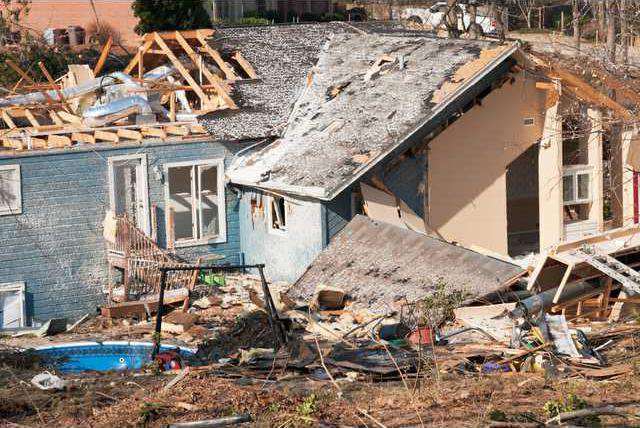Scammers are slithering out to take advantage of kind hearts in the wake of Hurricane Harvey's floodwaters, which have devastated Houston and other cities near Texas' Gulf Coast. The fraudsters are trying to divert goodwill and donations from reputable organizations into their own pockets.
The best way to avoid being bilked is to take the time to check out charities and if the person doing the soliciting rushes you, don't bite. Relief efforts will be ongoing for some time; you have time to check things out and direct your resources where they will do the most good.
The Federal Trade Commission offers advice for helping out in meaningful and real ways in the aftermath of the still-unfolding weather disaster, which has claimed lives and destroyed billions of dollars worth of property. Among other things, the agency is directing would-be helpers to its page, "Charity Scams."
The FTC suggests would-be donors check out charities with one or more of the following sources before making a donation. And if you've never heard of an organization, it could be sketchy. Donate through established groups. You can check out charities with these organizations: Better Business Bureau Wise Giving Alliance, Charity Navigator, Charity Watch, GuideStar, IRS Search for Tax Exempt Organizations and National Association of State Charity Officials.
The Better Business Bureau says consumers can report suspected scams to its Scam Tracker, the Texas attorney generals hotline (800-621-0508) or email consumeremergency@nag.texas.gov).
Here's a sampling of the types of scams that crooks are using to try to cash in on Harvey:
1. Bogus "GoFundMe" pages. The Washington Post reported, for example, that multiple GoFundMe pages were set up to help Harvey victim Jeremiah Richard and his family. Richard had to put a note on the real page and on his social media warning people about fake pages. Many fake accounts use the names of real victims who won't see the money.
2. Sound-alike relief agencies. Pay attention to names that are similar to reputable agencies, like "Red Cross Agency," instead of "American Red Cross."
3. Desperate phone calls. Experts say they won't be surprised to see an old scam revised, where an older person receives a middle-of-the-night phone call that says something like, "Grandma, I am stranded in Houston without money or food. Can you wire me some cash?"
4. Fake online sites: Scammers want to make it as easy as clicking a button to donate. Instead, if you want to donate online, carefully type in the URL, or internet address, of the charity you choose instead of clicking on a link that may take you somewhere else entirely.
5. Door-to-door money drives. Unless you know the person doing the collecting, it's hard to be sure the money's going where it's supposed to.
The best way to avoid being bilked is to take the time to check out charities and if the person doing the soliciting rushes you, don't bite. Relief efforts will be ongoing for some time; you have time to check things out and direct your resources where they will do the most good.
The Federal Trade Commission offers advice for helping out in meaningful and real ways in the aftermath of the still-unfolding weather disaster, which has claimed lives and destroyed billions of dollars worth of property. Among other things, the agency is directing would-be helpers to its page, "Charity Scams."
The FTC suggests would-be donors check out charities with one or more of the following sources before making a donation. And if you've never heard of an organization, it could be sketchy. Donate through established groups. You can check out charities with these organizations: Better Business Bureau Wise Giving Alliance, Charity Navigator, Charity Watch, GuideStar, IRS Search for Tax Exempt Organizations and National Association of State Charity Officials.
The Better Business Bureau says consumers can report suspected scams to its Scam Tracker, the Texas attorney generals hotline (800-621-0508) or email consumeremergency@nag.texas.gov).
Here's a sampling of the types of scams that crooks are using to try to cash in on Harvey:
1. Bogus "GoFundMe" pages. The Washington Post reported, for example, that multiple GoFundMe pages were set up to help Harvey victim Jeremiah Richard and his family. Richard had to put a note on the real page and on his social media warning people about fake pages. Many fake accounts use the names of real victims who won't see the money.
2. Sound-alike relief agencies. Pay attention to names that are similar to reputable agencies, like "Red Cross Agency," instead of "American Red Cross."
3. Desperate phone calls. Experts say they won't be surprised to see an old scam revised, where an older person receives a middle-of-the-night phone call that says something like, "Grandma, I am stranded in Houston without money or food. Can you wire me some cash?"
4. Fake online sites: Scammers want to make it as easy as clicking a button to donate. Instead, if you want to donate online, carefully type in the URL, or internet address, of the charity you choose instead of clicking on a link that may take you somewhere else entirely.
5. Door-to-door money drives. Unless you know the person doing the collecting, it's hard to be sure the money's going where it's supposed to.





